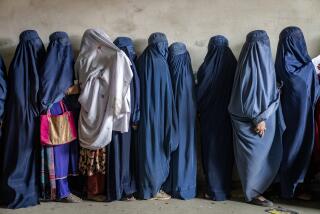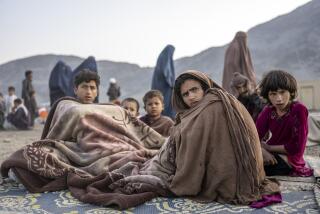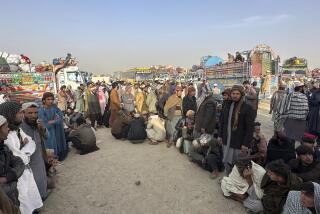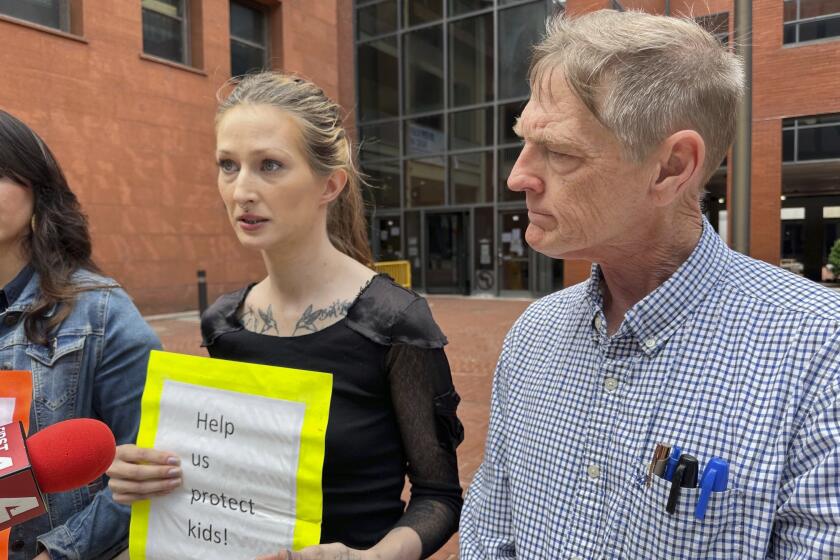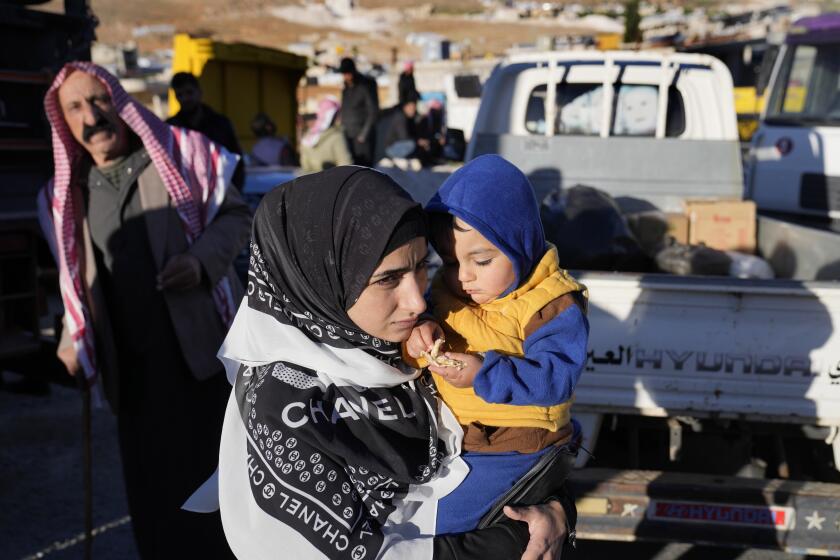8 executed by hanging in Afghanistan, ending 4-year moratorium
KABUL, Afghanistan -- Eight people were executed by hanging in Afghanistan on Tuesday, ending a virtual four-year moratorium on the death penalty. Officials announced that eight more men are to be hanged on Wednesday.
The 16 death sentences were formally approved by Afghan President Hamid Karzai, drawing immediate condemnation from the New York-based Human Rights Watch.
The first eight men were hanged Tuesday in Pul-e-Charkhi prison in Kabul after being convicted on charges of murder, rape, kidnapping, robbery and sexual assault. Afghan justice officials said they were guilty of “crimes and cruelty against children, women and the people of Afghanistan.”
Human Rights Watch called on Karzai to halt all executions. Under Afghan law, death sentences must be signed and approved by the president. Executions have been relatively rare in Afghanistan since the fall of the Taliban government in 2001.
“The Afghan government’s near total moratorium on the death penalty in recent years was a major departure from Taliban rule,” Brad Adams, Asia director for Human Rights Watch, said in a statement. “The eight hangings in a single day are a terrible step backward for Afghanistan.”
Nasrullah Stanikzai, a legal advisor to Karzai, said in response to Human Rights Watch that capital punishment is legal under the Afghan Constitution -- and in many other nations. He told The Times that those executed had been fairly convicted after long trials.
Asked why the men were put to death after a four-year period virtually free of executions, Stanikzai replied: “We want to be very accurate and fair in our trials, and a fair trial takes more time.”
He said the Afghan government intends to continue executing anyone convicted and sentenced to death.
“People who commit serious crimes will be executed,” Stanikzai said.
The hangings reflect an increasingly independent stance taken by Karzai, who has broken with his nominal American allies on several fronts, especially in matters of security, justice and law.
The Taliban government staged frequent public executions, some of them before large crowds in a soccer stadium. One person was executed in 2004 by the Afghan government put in place after the end of Taliban rule in 2001. There were no more executions until 2007, when 15 people were killed by firing squad at a Kabul prison, according to Human Rights Watch.
After executions continued in 2008, Afghanistan was harshly condemned by the United Nations and the European Union. After that, the Afghan government broke an unofficial moratorium just once, when two men were executed in June 2011 for a spectacular February 2011 attack on a bank that resulted in the deaths of 38 people in Jalalabad.
Human Rights Watch said Afghanistan’s justice system, which has received Western aid and advisors for a decade, remains weak, corrupt and far below international standards for fairness and accountability. Confessions are often obtained through torture, the group said, and defendants are often denied effective counsel.
“The death penalty is an act of cruelty that should never be used,” Adams said. “Its use in Afghanistan, where a fair trial is typically out of the question, is even more horrific.”
ALSO:
Disputed islands belong to Colombia, court rules
Obama sends Hillary Clinton to Mideast to seek Gaza truce
Key figures in phone-hacking scandal to be charged with bribery
Special correspondent Hasmat Baktash contributed to this report.
More to Read
Start your day right
Sign up for Essential California for news, features and recommendations from the L.A. Times and beyond in your inbox six days a week.
You may occasionally receive promotional content from the Los Angeles Times.
